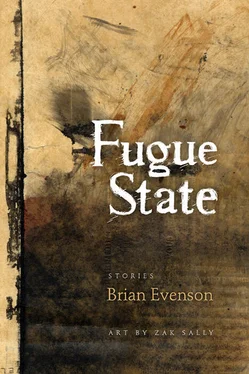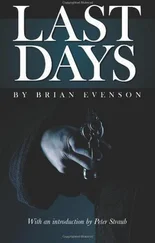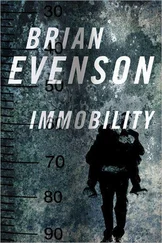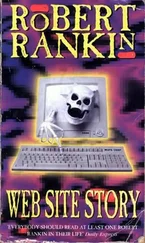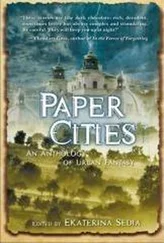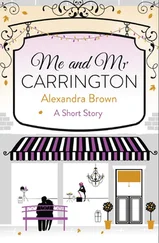“From a chat room,” he said. “Ran into this guy attacking the fascists on Nazichat.com and got him to agree to write his book for us before the supremacists blocked him from the chat room. Fortunately, I was the only editor monitoring that particular list.”
“Doesn’t it tell you something that you were the only editor logged on to Nazichat.com?”
“Sure it does,” said Anders. “It tells me I’m the only one smart enough to sniff out the next big thing. Imagine this: you’re a KKK member, happily living out your dreams of white supremacy, maybe even involved in a few lynchings — of course, you’re not directly involved, or at least you won’t be once a good editor gets through with you — when Blammo! it hits you like a ton of lead.”
“What hits you? Did you actually say ‘blammo’?”
“You find out your grandfather was a Jew. Yes, blammo. Why not? I’ll say it again: blammo. So you give up the KKK, reform, and go to Israel to immerse yourself in your newly discovered heritage.”
“Sounds like a bad TV movie.”
“Exactly,” said Anders. “It’s sure to sell to TV. Cinchy’ll eat it up.”
“Cinchy wants me to bake him a cake.”
“A cake? Is it his birthday? I didn’t get him anything.”
“‘You can’t spread frosting on an empty plate.’”
“What are you talking about?”
“It’s a metaphor,” said Kossweiller. “You still remember metaphors, don’t you? It’s the best Cinchy can do. He wants me to stop publishing literature and start publishing blockbusters.”
“But you don’t do blockbusters,” said Anders. “You’re the guy who does literature, who gives us respectability. You’re the eye candy.”
“I’ve got to do at least one.”
“So, do one then.”
“What do I know about blockbusters? I don’t even know what sells.”
“Look,” said Anders, spreading his arms wide. “Don’t think in terms of good or bad. Think accessibility. Think largest possible target audience. Knowing you, if you go against all your impulses, it’ll work.”
•
He called the agents he knew best, took them to lunch, told them that this time he was looking for something “really big.” But his reputation as a literary editor meant they interpreted “big,” no matter how he qualified it, as literary.
Their best varied drastically. Raymond Knoebler of Knoebler & Goebler sent him the aging Thomas Johnson’s As a Boy One Read Kipling: A Literary Life; Jed Bunting passed along a copy of Sal Lazman’s The Slice, a literary golf novel; Sally Johnson offered a new posthumous collection of occasional pieces and a few stories by minimalist Roland Pilcher, a collection that Kossweiller suspected had been largely ghostwritten by Pilcher’s wife, a writer herself and a professional literary widow.
Carolyn Kiff, however, sent him Albert West’s fourth book, En Masse, a novel of enormous scope and skill, so good that he knew it couldn’t possibly sell. Not enough to sneeze at anyway. Cinchy would never sign off on it.
He sent the manuscripts back, except the West, which he couldn’t bear to turn down. Perhaps if he could find one huge book, one real blockbuster, he thought, Cinchy would let him do the West as icing.
Once he’d run through the agents he knew best, he approached those he generally shied away from. There was Claudia Bart, who offered him a chance for an unauthorized biography of George Clooney, but by the time, three hours later, he’d gained Cinchy’s approval, she regretted to inform him that she’d sold the book to a rival house. There was Robert J. Voss, who offered him a book about American one-hit-wonder bands, entitled Where Are They Now? Most of them were working at Wal-Mart, it turned out. Ducky Hawarth slid in wearing a spangly shirt to suggest Follies, a coffee-table book about dinner shows, musicals, and dancers, “done in three versions, one for each gender.”
There were other books, some of which he made halfhearted offers on. But the day before the quarterly meeting, Kossweiller still had nothing in hand. There was only one lunch appointment left, with a somewhat frayed hustler named Ralph Bubber.
Bubber was fat and pale, his hair greased back. He had a way of lasciviously squeezing his interlocutor’s arm, which made Kossweiller extremely uncomfortable. When he finally figured out that Kossweiller wasn’t after literature and that he worked for Cinchy, he looked up toward the ceiling and, grabbing Kossweiller’s arm, said:
“Picture this. The History of Raggedy Ann.”
“The doll.”
“Sure,” said Bubber. “Kind of a picture book. Dolls galore. And there’s a natural follow-up,” he said, lifting his index fingers for quotations marks. “The History of Raggedy Andy.”
“Have they changed a lot over the years?”
“Have they changed?” Bubber shrugged. “Not really. It just depends on what your perspective is.”
“And what’s the book’s perspective?”
“It can have any perspective you like,” Bubber said. “It hasn’t been written yet.”
“It’s not written?”
“Sure. But there’s any number of great, really first-rate writers I have at my fingertips who could crank the sucker out in two weeks.”
“Two weeks?”
“See,” said Bubber, rubbing the back of his neck with one hand and leaning forward to take Kossweiller’s arm again with the other. “A book like that has only three or four thousand words of text anyway. What you got is all pictures. Maybe ninety pictures over ninety pages. Dolls, dolls, dolls. Dolls on crackback chairs, dolls in barns, dolls on beds, dolls on swings, dolls with plants, maybe even dolls with dogs. Yes, definitely dolls with dogs. A natural.”
“You think it will be a blockbuster?”
“Who doesn’t like dolls?” asked Bubber.
II.
Morning found Kossweiller sitting in the conference room, staring at the wall. He was the first to have arrived. He had been more or less persuaded to try Bubber’s Raggedy Ann book — what did he have to lose? — but then late the night before he’d started to read West’s En Masse again. It seemed even better this time, and reading it made him feel very ashamed. How could he pass on it in favor of a coffee-table book?
People had begun to trickle in, editors and marketers and assistants from all over Entwinkle House. Soon everybody was there except for Cinchy.
“Did you hear about MacMaster & Bates?” Justice Turko was saying to an assistant next to her. “The author dump?”
“The author dump?” asked Kossweiller.
“Dropped over half their authors in a single afternoon,” said Ted Billner, drawing a finger across his throat. “Yesterday. Ought to be done here.”
“Orders straight from the top,” said Turko. “Maybe it will be.”
“Maybe it will be what?” asked Kossweiller.
“Done here.”
“Here’s an idea,” said Helen Harman, the pseudo-attractive unnatural-blond marketing director who went by H. H. She swept her hand in front of her face in a wipe. “HarperCollins,” she said, “and Tom Collins together at last. Free books with cocktails and vice versa.”
“Good one, H. H.,” said Turko.
“Why haven’t they thought of it yet?” asked Billner.
Kossweiller just stared.
“Finally here,” said Cinchy, striding in. “Just been on the phone with somebody big, can’t say who, couldn’t be ignored. Treat the stars like the stars they are. Got to, got to.” He sat down. “All right, then,” he said. “Go, go, go.”
They started at his right, working their way around the table. Paul Musswen had on the docket a book by a conservative and inflammatory U. S. Congressman about how his transvestite brother was dying of AIDS because he had gone against the will of God. Cinchy looked at H. H. and when she nodded, he nodded. Turko had four nearly identical memoirs of public figures whose fathers had “incested” them but who had not only “survived” but “conquered.” Again the nod passed from the marketing director to the boss of the people, like a tic. John Barnum Gotta had a photohistory of dresses belonging to J. Edgar Hoover and John Wayne (“Great!” yelled Cinchy. “Great!”). Duff McQuaid had persuaded the country’s best-known professor of African American Studies to compile a cultural dictionary called Afro-Americana! “And the best part,” said Duffy, “is his students are doing the work for college credit, so nobody has to pay them.” H. H.’s nod was long in coming, but it finally came, and Cinchy’s soon followed. Belva Adair had purchased three memoirs, one in which a female rock musician spoke out about her decision not to have children, another in which a woman poet spoke about her decision not to have children, another in which a woman novelist spoke about her decision, at age forty-five, to have a child (H. H. actually deigned to speak for this one: “Good coverage!” she said). Ted Billner just said, “Three different fetishes, three simple words, three simple titles: Rubber, Leather, Silk.
Читать дальше
